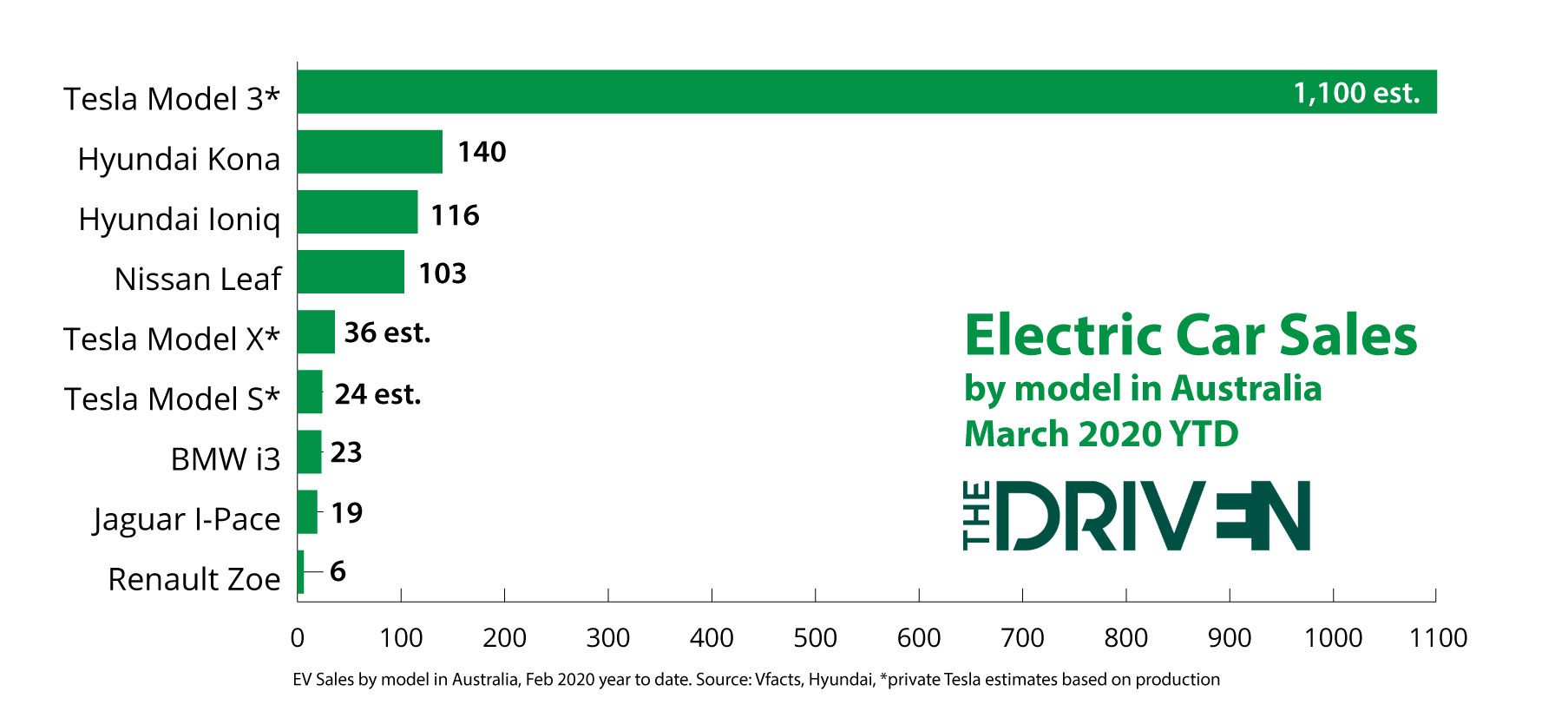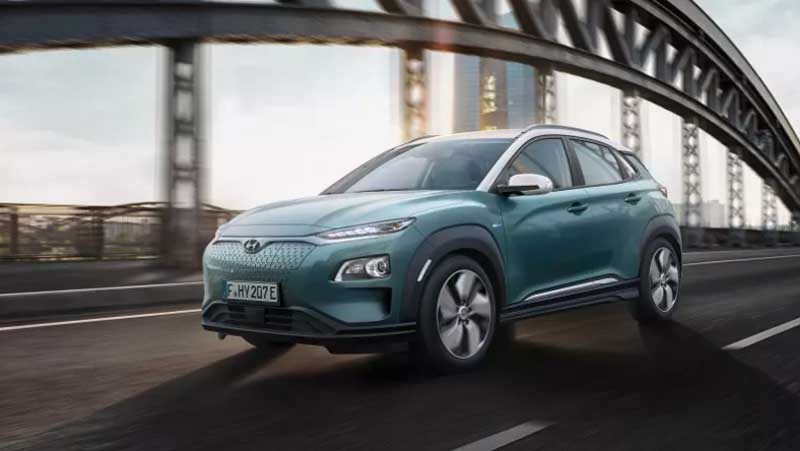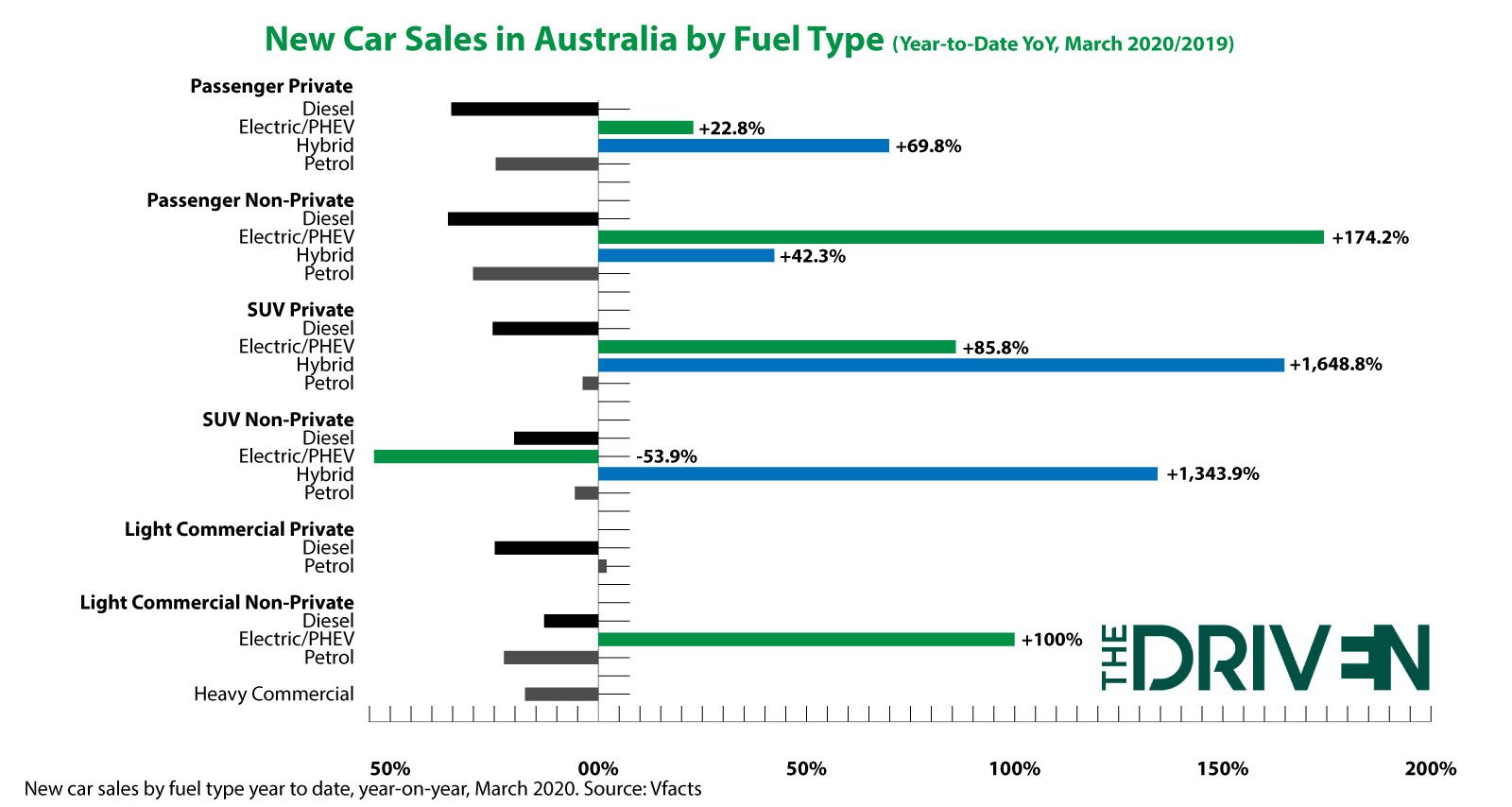Petrol and diesel car sales are falling off a cliff in Australia, as the Covid-19 pandemic worsens an already bad situation, deepening a two-year downturn that is now causing some car dealers to shut.
New figures from the Federal Chamber of Automotive Industries (FCAI) VFacts paint a clouded outlook for dealerships, although many are opting to keep open to ensure service and support for customer vehicles, in particular those in the health and emergency services industry.
The FCAI said overall car and SUV sales fell 17.9 per cent when compared to March 2019, and passenger vehicles were hit particularly hard, falling 25 per cent from the same month a year earlier.
Electric and hybrid vehicle sales, however, were one of the few bright lights in the data, with sales of electric, plug-in hybrid (PHEV) and hybrid passenger and SUVs up across the board, with the exception of commercial SUV sales.
The VFacts data – which does not include Tesla – shows private electric and PHEV passenger sales have almost doubled with 91.3% more sales compared to March 2019, and hybrid private passenger vehicle sales are up nearly 75%.
In the non-private sector, electric/PHEV and hybrid passenger sales registered a 75% increase, an encouraging figure against the significant decrease in non-private electric/PHEV SUV sales which saw a 53.9% drop in sales year-to-date .
Private electric/PHEV SUV sales went against this trend, with a 62.3% increase for March and an 85.8% increase year-to-date. Light commercial electric and PHEV sales also doubled.
Full year-to-date figures for electric, PHEV and hybrid sales are as follows – and as you can see, drops in electric/PHEV SUV sales seem to have been taken up by a massive interest in non-pluggable hybrid SUVs.
That will certainly deliver a moderate improvement in fuel efficiency for the emissions-heavy sector, but those buyers will now miss out on the opportunity to recharge from rooftop solar if they have it, or a grid that is moving towards renewables.
Of the available electric and hybrid SUVs, Hyundai Kona Electric sales remained steady (58 were sold in both February and March) despite a drop across all Kona drive-trains that saw a 16.7% drop in sales. Sales of the Jaguar I-Pace were also down a whopping 65% for March year-on-year.
In the passenger segment, the Hyundai Ioniq saw a modest rise across all drivetrains with the all-electric remaining the favourite with more than five times the sales of either the hybrid or PHEV version, and the Leaf also increased from the previous month.
Private estimates based on production figures for Tesla – which does not report its local sales figures to Vfacts – from sources familiar with the matter, suggest around 1,100 Model 3, Model X and Model S units combined were delivered in Australia in the first quarter.
Again, the FCAI has ignored the trend in the electrification of Australian transport in its comments, focusing on this occasion on the Covid-19 pandemic.
Instead Tony Weber, chief executive of the FCAI, said many dealerships have opted to remain open to maintain support for customers, particularly from a service perspective, during this difficult period.
“Of particular importance are first responder and essential services vehicles. We must keep these vehicles on the road to ensure our communities continue to function and remain safe,” Webber said.
Executive GM for Autocare, Simon Abela, acknowledges the new challenges the industry is facing, and role that electric vehicles have to play, particularly as states begin making moves to incentivise electrification of transport in Australia.
“The March car sales data – showing sales are down 17.9% from the same month last year – brings up two years of consecutive monthly declines for the sector, and the current pandemic is adding to the headwinds the sector is facing,” Abela said in an emailed note.
He highlights the recent policy announcement from the NSW state government as part of its Stage 1 Net Zero to encourage car makers to bring more electric vehicles onto the market.
“But the industry is clearly changing and so are the consumers. Recent announcements such as the New South Wales Government’s Net Zero policy announcement which aims to incentivise electric vehicle uptake and public chargers across the state will help encourage people to consider new vehicle purchases in the near future,” he says.
RenewEconomy and its sister sites One Step Off The Grid and The Driven will continue to publish throughout the Covid-19 crisis, posting good news about technology and project development, and holding government, regulators and business to account. But as the conference market evaporates, and some advertisers pull in their budgets, readers can help by making a voluntary donation here to help ensure we can continue to offer the service free of charge and to as wide an audience as possible. Thankyou for your support.

Bridie Schmidt is associate editor for The Driven, sister site of Renew Economy. She has been writing about electric vehicles since 2018, and has a keen interest in the role that zero-emissions transport has to play in sustainability. She has participated in podcasts such as Download This Show with Marc Fennell and Shirtloads of Science with Karl Kruszelnicki and is co-organiser of the Northern Rivers Electric Vehicle Forum. Bridie also owns a Tesla Model Y and has it available for hire on evee.com.au.



